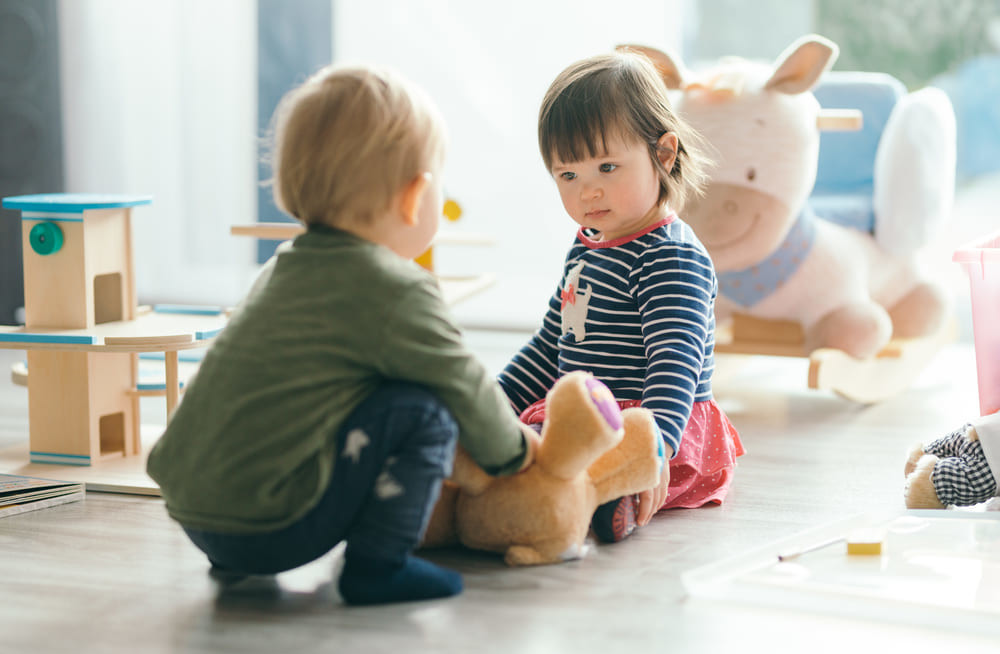
Remember the first time your baby rolled over? The excitement when you saw it happen, the joy that your little one had achieved a milestone? Nothing beats that feeling. Similarly, just as your baby learns to roll over, crawl and stand as the months go by, they also meet milestones when it comes to socialization.
The social skills that your child develops over the first few years of their life are vital. These skills, when it comes to communicating properly, having good manners, managing personal emotions and being considerate of others, will help them have healthy and respectful interactions with those around them as they grow older.
You will start to see your child develop social skills around the age of one. By this age, they will be able to recognize the faces of their parents, grandparents, their nanny – anyone they spend a fair amount of time with. They’ll also be able to interact with you, and communicate via pointing and vocalizing.
When your child is around two years old, you’ll start seeing that they have a preference towards certain adults, and will go to them for comfort. They may not interact and play with other children as yet though, but parallel play takes place. This is also the age where you’ll hear a lot of ‘Nos’ and ‘That’s mine’ – don’t worry! It’s completely normal. They will learn to share over time, but make sure that you and those around show the child how sharing works.
At the age of three, most kids are ready for playschool, if they aren’t already in a daycare program. Your little one will start to look for and seek out other children to play with. They will make eye contact and initiate conversations. They become more aware of, and start to identify emotions like being happy, sad, angry etc. A fun aspect of this age is that they start to pretend play, enjoy dress-up and start to use their imagination.
By the age of four or five, your child will be able to understand the concept of sharing better. There will be some resistance initially, but they’ll slowly start to take turns – encourage this. They’ll learn to negotiate at this stage, and be able to hold proper conversations. This is also the age where they’ll be physically affectionate, so enjoy every hug and kiss your little one gives you. Because on the other hand, they’ll start to exert their independence, and will want to pick out their own clothes and put on their shoes themselves. This can be a bother when you’re running late and you need your child to hurry up. So, take deep breaths and try to be patient, because they are developing social skills, which will hold them in good stead for the rest of their lives.
As a parent, you can help your child along as they develop different social skills. Talk to them about feelings, and teach empathy. Organize play dates where your child can learn about personal space, and the concept of taking turns. You might have to go over it a few times, but they will learn. Teach them how to communicate politely, how to greet other kids and to have good manners.
Remember, kids watch and learn from the adults around them, so practice what you preach. You have the most important job in the world – that of raising an emotionally stable, well mannered adult who treats others with respect and empathy. So, be patient with your child and yourself as you help them develop these social skills.